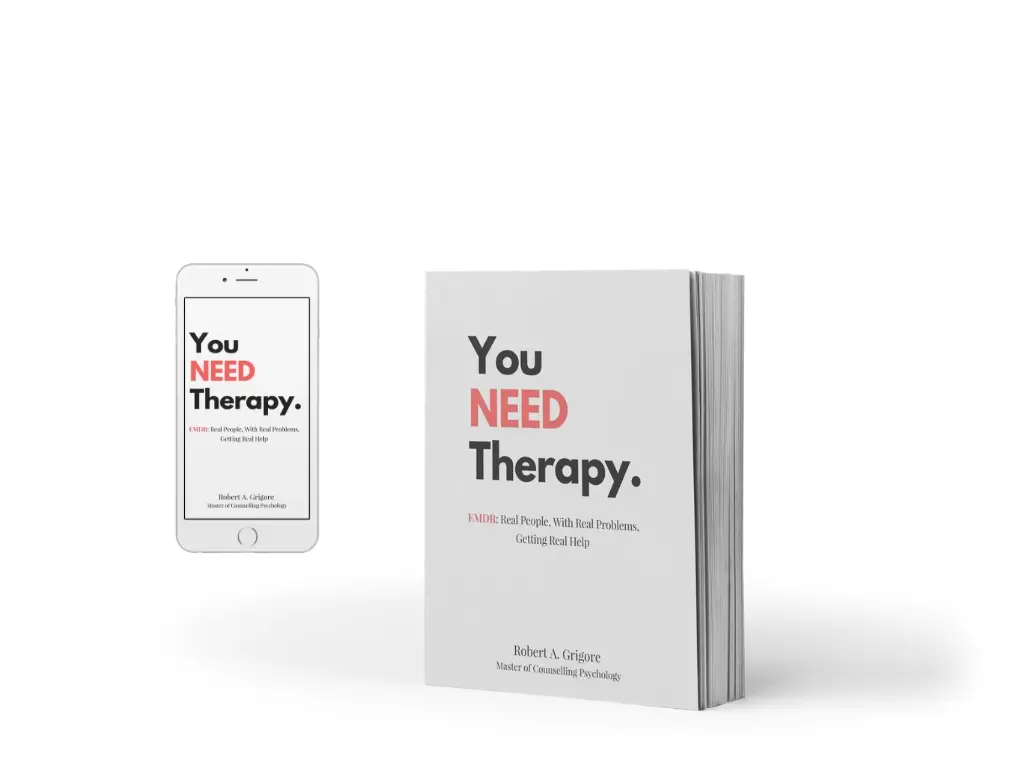You know exactly what you want: write that book, start therapy, say no more often, apply for the job, set better boundaries, or even just take a break. And yet, you don’t. Why we avoid doing what we want to do? Not because you’re lazy or weak. But because something deeper is happening under the surface.
Avoidance is one of the most common patterns we see in therapy. It can show up as procrastination, self-sabotage, perfectionism, or even overworking. At Grigore Counselling, we work with people every day who feel stuck. They want change. They can almost taste it. But they can’t seem to act on it.
So, why do we avoid doing the very things we want to do?
Avoidance Is a Protective Strategy
Most avoidance isn’t about the task. It’s about the emotional weight we associate with the task. That email you’re not sending? It’s vulnerability, rejection, or responsibility.
The brain is wired to protect us from discomfort. When it senses a threat, real or imagined, it engages in avoidance. This is often unconscious. You may say “I’ll do it tomorrow,” or “I need more time to think.” But underneath that is often anxiety, shame, or fear of failure.
This is where therapy comes in. Working with a therapist helps you become more aware of these emotional blocks and start moving through them. Our therapists are trained to work with the nervous system and trauma responses. We help clients unpack what’s really going on when avoidance keeps them stuck.
The Role of the Nervous System
Your body holds memory, not just your mind. When you avoid something you want, it may be because your nervous system has linked that action to a threat response. You want to speak up in a meeting, but your chest tightens. You want to end the relationship, but your stomach drops.
This physical resistance is not weakness. It’s learned survival.
Grigore Counselling offers trauma-informed therapy to help people work with—not against—their bodies. Modalities like EMDR or somatic therapy help clients process the past and finally take action in the present.
Emotional Perfectionism and the “Should” Trap
Avoidance often hides behind perfectionism. You want to start, but only if you can guarantee it’ll go well. You want to make the change, but only if you’re sure it won’t upset anyone.
This emotional perfectionism is rooted in early experiences. Maybe you learned that making a mistake led to punishment. Or that your needs didn’t matter unless they were convenient.
CBT therapy can help challenge these rigid thought patterns. Together, you and your therapist can explore the difference between what you want and what you’ve been conditioned to should.
How Therapy Helps You Move from Avoidance to Action
Therapy offers a space to explore your fears without judgment. You don’t need to have it all figured out before seeking support.
We help clients go from being stuck in avoidance to taking meaningful, aligned action. This doesn’t happen overnight, but with consistent support, small steps become powerful shifts.
For example, Dialectical Behaviour Therapy (DBT) offers concrete skills in emotional regulation and distress tolerance. These are often exactly what’s missing when someone says: “I just can’t make myself do it.”
You Don’t Need to Push Through Alone
Avoidance is not laziness. It’s a symptom of something deeper. And the good news is, it can be addressed.
If this sounds like you, therapy may be the next step. Our diverse team of therapists work across British Columbia, Yukon, and online across Canada. Sessions are available in-person or virtually to support your healing journey.
Ready to start doing what you really want to do?
Reach out today to book your first session.
FAQ: Why We Avoid Doing What We Want to Do
Why do I avoid doing things that are good for me?
Avoidance is often linked to emotional or psychological discomfort. Your brain may associate certain actions with fear, rejection, or failure, even if they’re good for you. Therapy helps identify and rewire these associations.
How do I stop procrastinating when I know what I want?
Start small. Recognize the emotion behind the procrastination. Therapy can help uncover these hidden blocks and offer tools for motivation and follow-through.
Can therapy really help with avoidance?
Yes. Many clients come to therapy feeling stuck. Working with a therapist helps break the cycle of avoidance by addressing its root causes, whether trauma, perfectionism, or nervous system dysregulation.











